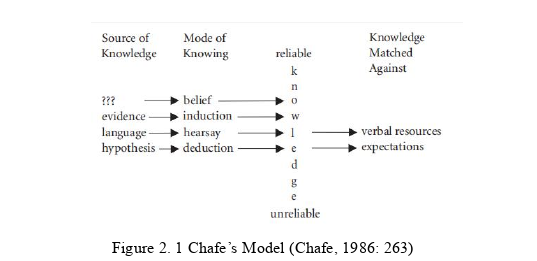联系方式
more本类最新英语论文
- 2024-04-23《荀子》英译副文本思考——..
- 2024-04-22《桂林旅游发展史》(节选)..
- 2024-04-13认知视角下影视作品《风雨哈..
- 2024-04-10《学习教学——英语教师指南..
- 2024-03-29中国医学叙事中有关死亡主题..
- 2024-03-28裘帕•拉希莉短篇小说..
- 2024-03-24文学伦理学批评视角下《克拉..
- 2024-03-17沃克《你不能压制一个好女人..
- 2024-03-16荒诞、异化与自由选择——从..
- 2024-03-14托尼·莫里森的民族忧患意识..
more热门文章
- 2017-12-14英语论文格式,及英语论文范..
- 2012-05-07英语论文怎么写,英语毕业论..
- 2012-05-07英语论文apa格式,提供范文..
- 2011-08-25英语学术论文写作技巧与格式..
- 2014-07-28英语论文研究方法methodolo..
- 2010-05-27essay格式
- 2012-04-11mla格式英语论文要求
- 2012-05-04英文注释怎么写?英语论文注..
- 2010-02-07英语论文致谢范文
- 2010-04-23dissertation guide
more留学论文写作指导
- 2024-03-31卡森•麦卡勒斯小说中..
- 2024-03-28美国黑人女性心理创伤思考—..
- 2024-03-27乔治·艾略特《织工马南》中..
- 2024-03-21超越凝视:论《看不见的人》..
- 2024-03-19《哈克贝利•费恩历险..
- 2024-03-13心灵救赎之旅——从凯利的三..
- 2024-02-22文学地理学视角下的《印度之..
- 2023-05-03英、汉名词短语之形容词修饰..
- 2023-02-07目的论视域下5g—the futur..
- 2022-07-04二语英语和三语日语学习者的..
基于语料库的中西学者英语学术论文言据性对比思考 [2]
论文作者:留学生论文论文属性:硕士毕业论文 dissertation登出时间:2022-04-23编辑:vicky点击率:1996
论文字数:33526论文编号:org202204182158334576语种:英语 English地区:中国价格:$ 44
关键词:英语论文格式
摘要:本文是一篇英语论文格式,本研究构建了国际语言学期刊的学术论文语料库,对中西方学者使用的证据性进行对比研究。由于本研究考虑的是广义的证据性,因此我们应该根据证据的语义功能来研究证据在语料库中的实现和分布。因此,本研究发现了中西方学者在使用证据方面的异同。
Chapter Two Literature Review
2.1 Definitions of Evidentiality
It is widely accepted that evidentiality indicates sources of information which istransmitted by a writer or a speaker. However, definitions of evidentiality haven’t reached aconsensus. Generally, evidentiality has been defined in narrow and broad senses, in particularafter Chafe first put forward the definition of evidentiality in a broad sense in the collectionEvidentiality: The linguistic coding of epistemology (1986) (Mushin, 2001:18). The definitionproposed by Anderson (1986) is usually regarded as a representative in a narrow sense, whilethe definition put forward by Chafe (1986) is generally seen as a representative in a broadsense. Later more scholars have made their own interpretations of evidentiality in these twosenses.
In a broad sense, evidentiality mainly refers to sources of information and speaker’sattitude towards the credibility of information. In this sense, evidentiality can be studied fromfunction to form, that is, to consider semantic functions of evidentiality first, and then studytheir linguistic realization (Hu, 1994a; Plungian, 2001; Fang, 2006). Chafe (1986) definedevidentiality as a range of epistemological considerations coded linguistically in language,and took speaker’s attitude into consideration (Chafe, 1986:262). Mushin (2001) alsosuggested that evidentiality was related to the mode of knowing, such as the source ofinformation, and speakers’ subjective expressions of information (Mushin, 2001:18). Heinsisted on exploring epistemological position behind evidentiality system, and focused onspeakers’ speech acts, which was helpful for pragmatic studies on evidentiality (Mushin,2001:51).
2.2 Classifications of Evidentiality
Different definitions of evidentiality contribute to different classification criteria (Fang,2006). Although scholars around the world have been studying the definition of evidentialitymore and more intensively, they have not reached a consensus yet. Many scholars havepresented their different understandings of evidentiality, which leads to the coexistence of avariety of classification criteria. These criteria will be reviewed from broad and narrowsenses.
In a broad sense, Chafe (1986) did not agree to regard some languages like English aslanguages without the ability to code evidentiality (Hu, 1994a: 11), and depicted an evidentialsystem with four levels: source of knowledge, mode of knowing, reliability of knowledge,and factors that knowledge matched against. He held the view that different sources ofknowledge could determine different ways to acquire knowledge, and reliability ofknowledge acquired from different sources could be various. Finally, new knowledge wouldinteract with knowledge acquired earlier. This kind of interaction covered whether theknowledge could be expressed explicitly by words and whether it was in line with people’sexpectations. Chafe’s model is shown in Figure 2.1.

Chapter Three Theoretical Framework...................15
3.本论文由英语论文网提供整理,提供论文代写,英语论文代写,代写论文,代写英语论文,代写留学生论文,代写英文论文,留学生论文代写相关核心关键词搜索。

 英国
英国 澳大利亚
澳大利亚 美国
美国 加拿大
加拿大 新西兰
新西兰 新加坡
新加坡 香港
香港 日本
日本 韩国
韩国 法国
法国 德国
德国 爱尔兰
爱尔兰 瑞士
瑞士 荷兰
荷兰 俄罗斯
俄罗斯 西班牙
西班牙 马来西亚
马来西亚 南非
南非






